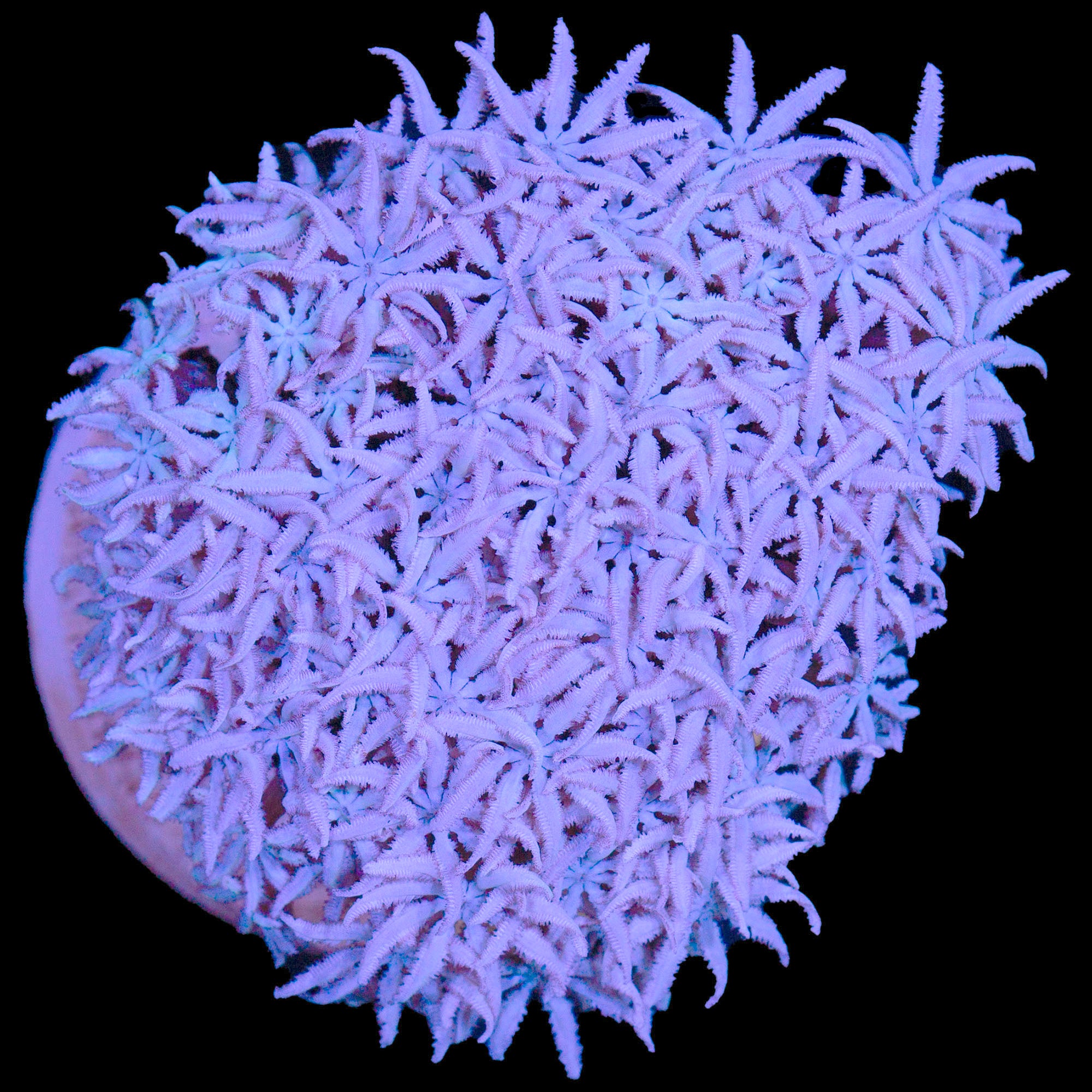Year End Clearance Sale 25% Off All Frags
Free Shipping Over $249 or $29.99 for Orders over $100
Frosty Pipe Organ Coral
$ 31.79
Please select all options.
How to Care for Frosty Pipe Organ Coral:
(written by Dave Burr)
Although Frosty Pipe Organ Coral does have a red skeleton it is actually classified as a soft coral. It is often confused with Star Polyps. Unlike Star Polyps, it will not encrust the rocks and crowd out other coral species. It is a good coral to use to fill in gaps between other peaceful corals as it will not sting.
Placement: Mount the Frosty Pipe Organ using IC gel glue, or putty, on an exposed rock or ledge in the middle third of the aquarium where they will receive moderate currents and moderate to high lighting. Leave a few inches around them and consider that they will often begin to shade corals around them as they grow larger.
Feeding: Although symbiotic algae called zooxanthellae hosted within them supply most of their nutritional requirements through photosynthesis they do require supplemental feedings of phytoplankton, zooplankton, and marine snow.
Lighting & Flow Requirements: The Frosty Pipe Organ Leather requires moderate water flow and low to moderate lighting (PAR 200-300). T5's, Metal Halides, or LED's can all grow Pipe Organ Corals when the proper PAR levels are provided. We recommend a 14-20K color spectrum for best coloration.
Care Level: Moderate
Lighting Requirements: Moderate to high (PAR 200-300)
Water Flow: Moderate
Aggressiveness: Peaceful
Range: Fiji, Indo Pacific
Water Conditions: 75-80° F; sg 1.024-1.026 (1.025 is ideal); pH 8.1-8.4 Ca 420-440 ppm, Alk 8-9.5 dKH, Mg 1260-1350, Nitrates <10ppm, Phosphates, < .10ppm
Water Chemistry: Providing additions of iodine will help the Frosty Pipe Organ grow. Most good salt mixes will provide enough iodine through water changes. It is important that proper calcium (420-440 ppm), alkalinity (8-9.5 dkh - run it 7-8 if you are carbon dosing) , and magnesium levels (1260-1350 ppm) are maintained. Raising magnesium levels gradually up to 1400-1600 ppm can help to combat algae outbreaks, just keep CA and Alk in line as you raise the Mg. Nitrates should be below 10 ppm and phosphates should be below .10 ppm. We recommend doing a water change when Nitrate levels rise to 10 ppm. It is important to replace your phosphate media when phosphates rise to .10 ppm. Media Reactors make the most efficient use of your phosphate media by fluidizing it.
Dosing: Vivid Aquariums uses and recommends dosing pumps to automate the dosing of additives and keep your levels more constant. A dosing pump can alleviate the chore of manually dosing your aquarium with Ca, Alk, & Mg 2,3, or 4 times per week and will benefit your aquarium by keeping your levels constant through frequent small additions of Ca, Alk, & Mg. Our tanks all progressed when we switched from 3 manual dosings per week to 70 automatic dosings per week and we got a lot more work done.
Video
Category: 25-50, LPS Coral Frags, moderate, moderate-to-high-lighting, tubipora-musica
Type: Corals and Inverts


